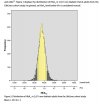0dd0ne
Newbie
- Messages
- 2
- Location
- Staffordshire
- Type of diabetes
- Family member
- Treatment type
- I do not have diabetes
- Dislikes
- Politics, religion, news, news media, hypocrisy, bigotry, prejudice, arguments, confrontation. Oh, and oysters!
Hi there,
Apologies for the long post. Feel free to grab a coffee before you settle to read.....
So, my partner has recently been diagnosed with type 2 diabetes and she's completely confused about what she can and can't eat. She's read a lot of posts on here and other forums, groups etc, and she tells me that they seem to be very contradictory. One will say one thing and another will say the complete opposite, or what seems to be the complete opposite to her. She also has absolutely no idea what her numbers should be pre and post meals, how often she should eat, when she should eat, and so on. She needs to lose quite a lot of weight, but at 62 and with a chronic pain/fatigue condition to boot, she can't really exercise at the moment to help achieve this. She also needs to keep to a diabetic friendly diet and keep her numbers within a good range but she has no idea how to do any of it. Her doctor has been about as much use as a windbreak in a hurricane, (she didn't even know she *was* diabetic until she received an appointment for the diabetic clinic! She was told she was pre-diabetic about 18 months ago, and had been going for regular blood tests since, but when she went from pre to full on, the doctor failed to tell her! She had to call and ask why she'd been referred to the clinic, and it was then that they said, "Oh yes, your last test showed you were now type 2"  ). Anyhow, I'd really like to be able to point her in the direction of some good, plain speaking, easily understandable, advice. She can't get her head around carbs, sugars and fibre. She'll say things like, "So I can eat carbs, but not much sugar? But isn't sugar a carb? And isn't fibre a carb? But I'm supposed to eat fibre? And what about fruit, that's full of sugar, but it's supposed to be good for you? So I can't eat fruit?". And I can't explain it in a way she understands. I'm very worried about her, and really want her to be able to get this under control and get healthier. So any help or advice would be most welcome!
). Anyhow, I'd really like to be able to point her in the direction of some good, plain speaking, easily understandable, advice. She can't get her head around carbs, sugars and fibre. She'll say things like, "So I can eat carbs, but not much sugar? But isn't sugar a carb? And isn't fibre a carb? But I'm supposed to eat fibre? And what about fruit, that's full of sugar, but it's supposed to be good for you? So I can't eat fruit?". And I can't explain it in a way she understands. I'm very worried about her, and really want her to be able to get this under control and get healthier. So any help or advice would be most welcome!
If you've reached this far.... thank you!
Apologies for the long post. Feel free to grab a coffee before you settle to read.....
So, my partner has recently been diagnosed with type 2 diabetes and she's completely confused about what she can and can't eat. She's read a lot of posts on here and other forums, groups etc, and she tells me that they seem to be very contradictory. One will say one thing and another will say the complete opposite, or what seems to be the complete opposite to her. She also has absolutely no idea what her numbers should be pre and post meals, how often she should eat, when she should eat, and so on. She needs to lose quite a lot of weight, but at 62 and with a chronic pain/fatigue condition to boot, she can't really exercise at the moment to help achieve this. She also needs to keep to a diabetic friendly diet and keep her numbers within a good range but she has no idea how to do any of it. Her doctor has been about as much use as a windbreak in a hurricane, (she didn't even know she *was* diabetic until she received an appointment for the diabetic clinic! She was told she was pre-diabetic about 18 months ago, and had been going for regular blood tests since, but when she went from pre to full on, the doctor failed to tell her! She had to call and ask why she'd been referred to the clinic, and it was then that they said, "Oh yes, your last test showed you were now type 2"
If you've reached this far.... thank you!



